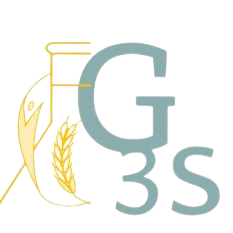What is Gluten3S DIET?
The Gluten 3S DIET software is a complete tool for creating and designing gluten-free diets created by the Gluten3S research group of the University of the Basque Country. It can be of great help to health professionals such as dietitians-nutritionists, doctors and nurses so that they can evaluate and monitor their patients, as well as to anyone who wants to evaluate and monitor their gluten-free diet.
The software has the nutritional information of more than 700 specific gluten-free foods and generic foods, which allows to create daily or weekly meal plans and record the evolution of the disease and / or diet. Apart from being able to create and evaluate gluten-free diets through dietary records, the application also allows recording data regarding biochemistry, anthropometry, symptomatology, adherence and dietary data that can provide information about eating habits. In order to provide a closer and more agile follow-up, the option of interacting through messages between the professional and the patient has been recently implemented, thus improving communication between both parties.
What does
the application allow?
- Provides nutritional information on gluten-free and generic foods: The application has an extensive database that includes more than 700 specific gluten-free and generic foods and their respective nutritional information (energy, macronutrients and micronutrients). This nutritional information can be consulted to know the nutritional values of foods and plan appropriate meals.
- Designing dietary plans: Allows the creation of daily or weekly dietary plans using the gluten-free foods available in its database. This facilitates the planning of a balanced and varied diet.
- Record of the patient’s evolution: The application allows keeping a record of the evolution of the celiac disease and/or its diet. You can record symptoms, changes in biochemistry and anthropometry, assess adherence to the gluten-free diet and the patient’s quality of life. This provides a more complete picture of your progress and helps identify possible improvements.
- Perform dietary recording: a detailed record of dietary intake can be made, including data on foods consumed, quantities and meal times. This helps to identify dietary patterns and facilitates analysis of eating habits.
- Communicate with the healthcare professional: Recently, an option has been implemented for the healthcare professional and the patient to interact through messages. This improves communication and allows for a closer and more agile follow-up of progress.
- Educational content: The application provides access to various content related to nutritional education. You can find information on a balanced gluten-free diet, practical tips, recipes and other useful tools to improve your knowledge of healthy eating.
- Access to social networks: You can also access social networks from the app, allowing you to stay updated on the group’s progress, discoveries and news.
The app gives you tools to plan and follow a gluten-free diet, keep track of your progress, interact with health professionals, access educational content and connect with others in celiac disease communities.
GLUTEN3S
RESEARCH TEAM
The Gluten3S research team of the University of the Basque Country (UPV/EHU) is a multidisciplinary team that has been dedicated since 1998 to the research and analysis of gluten, its main objective being the improvement of the quality of life and health of the celiac population.
They base their research on three different lines of work:
- In the Food Industry: production and control of safe gluten-free foods and products.
– Quantitative determination of gluten in foods, additives and parapharmacy products by Sandwich ELISA and Competitive ELISA (fermented and hydrolyzed matrices).
– Development of complementary and confirmatory gluten detection methods (DNA-, N-, N-, N- and N-acetylcholine-based methods)
(DNA-based methods, NIR).
The group’s testing laboratory is accredited by ENAC with accreditation no. 774/1626. They are also authorized by the CONTROLLED BY FACE guarantee mark, which indicates their ability to perform analysis and quality testing of gluten in products.
- Promotion of a balanced gluten-free diet for the celiac population.
– Nutritional research through the study of lifestyle habits, dietary habits, assessment of nutritional status and quality of life of the celiac population, both in adulthood and childhood. This helps to understand the challenges and needs of celiac people in their daily lives.
– Creation of the software to design and evaluate gluten-free diets GLUTEN3S DIET. This software has a database of more than 700 specific gluten-free and generic foods including nutritional composition data (energy, macronutrients and micronutrients).
– Development of specific tools (software, app, guides, social networks) for people with celiac disease.
- Quality of life of people with celiac disease: Inclusion of people with celiac disease in society through nutritional education.
– Nutritional education of celiac disease sufferers and the general population both in person and through on-line educational tools (didactic unit in schools, science week, family workshops…) and dissemination of information about gluten and celiac disease. The aim is to promote the inclusion of celiac disease sufferers in society.
